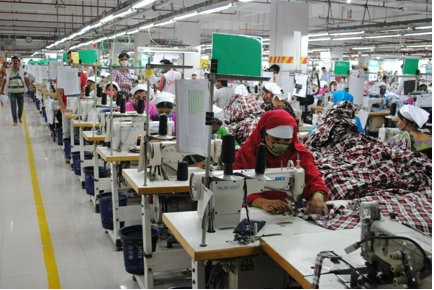INP-WealthPk
Muhammad Saleem
Rural women trained in stitching, embroidery, and quality control could help bridge the labor gap in Faisalabad’s textile sector.

Speaking to WealthPK, Raheel Ahmed, a garment exporter, said Faisalabad is known as the Manchester of Pakistan due to its thriving textile industry, which generates much-needed foreign exchange. While the current situation is challenging for the sector, he noted that it would be wrong to assume these conditions will persist indefinitely. He pointed out that Faisalabad often faces a shortage of skilled labor, which disrupts production.
However, he believed that providing rural women with proper training in textile-related skills—such as embroidery, stitching, and quality control—could effectively address the manpower shortage. This would also open doors to respectable employment opportunities for these women. He added that the economy would continue progressing toward more stable and sustainable growth.
Rural women represent untapped potential, and public-private partnerships could play a key role in bringing them into the workforce. Shazia Bibi, a resident of Awagat, told WealthPK that many women in her village and surrounding areas remain idle at home, wishing for honorable earning opportunities to support their families financially. However, they lack access to such prospects.
She mentioned that some women from her area had relocated closer to Khurrianwala, a developed industrial zone with numerous factories. These women have secured respectable factory jobs, making it easier for them to support themselves and their children. Yet, many villages still have women solely engaged in household chores. These areas lack factories where women could work, and there are no systems in place for factory owners to provide home-based work opportunities, she explained.
Raheel, the garment exporter, noted that it is impractical for factory owners to arrange transportation for women from distant villages, as the long commute would be time-consuming. Additionally, this approach would increase operational costs for businesses. He suggested that the most viable solution would be for the government to establish small production units in various villages on a trial basis. This would not only ease urban congestion but also create respectable job opportunities for rural women within their own communities.
Humayun Ahmed, a vocational training instructor, stressed the urgent need for specialized training programs for rural women. He emphasized that women are fully capable of meeting the textile industry’s local labor demands. By offering hands-on training, the government could help industrialists overcome the skilled labor shortage, he added. He also highlighted how information technology is transforming every sector, including textiles, through innovation.
Traditional training in stitching and embroidery is no longer sufficient—programs must align with emerging industry trends, he said. “If the government collaborates with the private sector to integrate rural women into Faisalabad’s textile industry, it could be a game-changer. This move would not only resolve labor shortages but also drive economic growth, social empowerment, and sustainable development,” Humayun concluded.
Credit: INP-WealthPk













